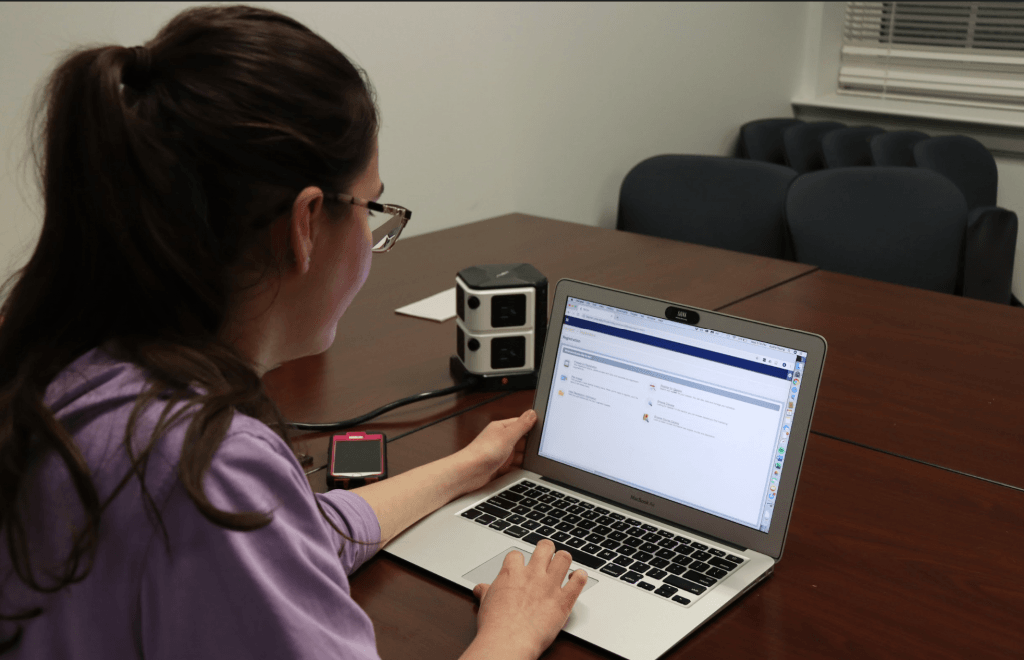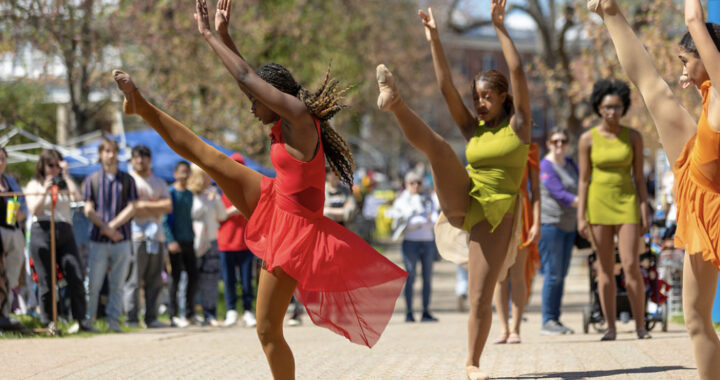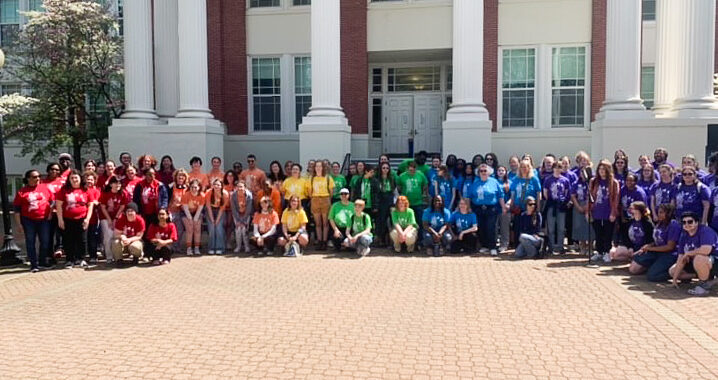Honors courses lack flexibility for some majors
3 min read
Students in the Honors Program have priority registration. (Sarah Sklar | The Blue & Gray Press)
by JOE JOHNSON & KATE SELTZER
Staff Writer & News Editor
It’s that time of the semester when students register for their new courses. Honors Program scholars have to make this decision earlier than most students, and got to choose their courses starting Oct 24. They are required to take nine credits of honors-designated coursework beyond their freshman seminars. Since its inception, the Honors Program has consistently added courses to cater to a diversity of majors. Four new courses were added this year alone.
The goal of the program from its inception in 2011 has been, according to the Honors Program director Kelli Slunt, to provide “an intellectual home” for high-achieving students. Honors classes are available to all students, however.
Slunt said she recently sat in on a modern languages meeting with the intent of expanding the honors designation to courses beyond Spanish. Coming this spring, students are able to choose from 21 courses in 16 disciplines. There are 53 approved honors-designated courses that are offered at least once every two years.
Some students think there should be more honors course offerings in a variety of majors.
“The problem is that there’s only a handful of honors-designated courses in each major. There’s only two or so that are really offered in religion to the best of my knowledge,” said junior history major Grace Corkran. “A lot of people find themselves in the situation where they need to take an honors-designated course, and they have to take a course that has nothing to do with their major and so it kind of pulls them away from that.”
Other students feel the honors course selection is too STEM-heavy.
“It seems like it’s for people who are primarily pre-med,” said freshman Maya Jenkins.
The process for designating a class follows a similar process as designating a course as writing or speaking intensive. The class is first recommended by a faculty member to be designated as an honors course. The Honors Program website states that the course must meet the objectives of the Honors Program, including developing communication skills, incorporating an interdisciplinary focus and enhancing research skills.
The course is then approved by a faculty committee with five members. Only after it has been vetted, and it is clear that the course articulates the objectives of independent student learning as defined by the Honors Program objectives does it become an honors course.
These objectives may scare off the average student who is not a part of the Honors Program due to fear of extra work and long papers. Slunt made it clear that this is not what makes an honors course different from any other course at UMW. For example, in STEM courses the lectures are similar to a regular course but the lab part involves more research and advanced instrumentation. It is also possible that students have a background in honors-like courses because multiple courses at UMW already teach advanced speaking and interdisciplinary skills which is a vital part of any honors course.
“If someone had not told me that they were honors I would never have been able to guess it,” Corkran said. “That doesn’t mean that they’re bad classes, but all these classes at college are hard and so there’s nothing that makes an honors class more difficult.”
Corkran said honors classes should be more goal-oriented, like courses designated as speaking or writing intensive.
“I really can’t say what an honors-designated class gets you,” she said. “I would have just said that maybe you needed an extra writing-intensive course or an extra speaking intensive course rather than doing specifically honors-designated classes.”
Abigail Buchholz contributed to reporting for this article.
A previous version of this article implied that all honors courses have advanced labs. This is specific to honors STEM courses and has been corrected.
The following information has been added after publication for clarity: There are 53 approved honors-designated courses that are offered at least once every two years. The process for designating a class follows a similar process as designating a course as writing or speaking intensive.












November 15, 2019
Dear Editor:
Thank you for raising the concerns of UMW Honors Scholars about the selection of Honors-designated courses at UMW. Though we wish the article had highlighted the true diversity of our course selection across the social sciences, arts and humanities, and STEM fields, we also hope that it will spur even more faculty, especially in disciplines and colleges with less representation in Honors, to propose their classes as Honors sections. We work diligently to encourage curricular growth, and rely on the faculty in turn to support this unique teaching and learning opportunity. Honors courses are designed to engage students in challenging learning experiences with an interdisciplinary focus that enhance research, critical reading and thinking, problem-solving and communication skills. While the students admitted to the Honors Program are required to complete 12 credits of coursework, knowing that many would enjoy and benefit from such experiences, the UMW Honors Program opens its classes to all UMW students and encourages them to consider enrolling in an honors-designated (HN) section.
This spring, 21 different honors-designated courses from 16 different disciplines will be offered to UMW students. The Honors Program Faculty Advisory Committee welcomes new proposals from faculty through a simple form on the Honors website, much like the designation of a course as WI or SI. HN-designated courses may overlap general education requirements or be upper-level courses in major programs. Faculty interested in exploring new pedagogical techniques in the classroom could utilize an honors-designated course as a venue to explore fresh avenues for teaching. The Faculty Honors Advisory Committee and Honors Program staff are available to brainstorm about new courses or assist faculty in development of the proposals. Our website sets out clear expectations and learning outcomes for Honors courses, not to increase workload but to challenge students through differentiated learning experiences in and out of the classroom. Honors courses vary depending on the instructor and the field. For instance, a recently approved Women in the Opera course (MUHL 153) provides students with greater ownership over their learning. In this course, students will explore opera through multiple lenses and disciplines. Students will undertake self-directed projects and will play a role in developing and setting the expectations for the course grade. In others, students may engage in applied or primary research, design collaborative projects, or challenge themselves in additional innovative ways.
The UMW Honors Program looks forward to working with faculty to provide expanded learning opportunities for our students, and we urge Honors students themselves to reach out to faculty or departments in which they desire more offerings. Additionally, we hope that more UMW students select to participate in these courses that may offer unique learning opportunities such as service learning, advanced research skills, or self-directed learning.
Sincerely,
Honors Program Staff and Faculty Advisory Committee
Kelli Slunt, Honors Program Director
Mara Scanlon, Honors Program Assistant Director
Amanda Ronay, Honors Program Coordinator and Office Manager
Don Lee, Chair of Honors Program Faculty Advisory Board
Jennifer Barry
Mindy Erchull
Leanna Giancarlo
Pamela Grothe